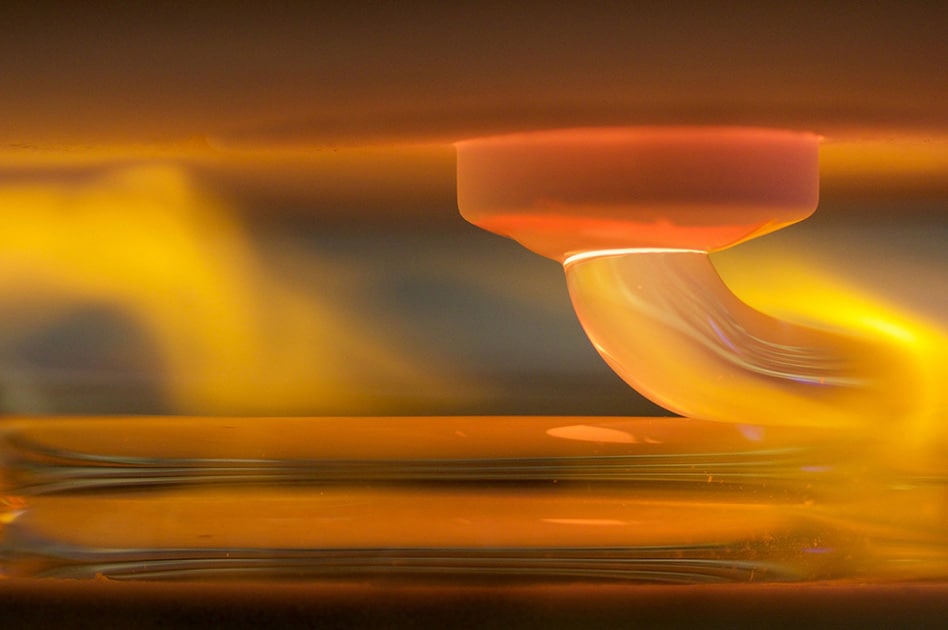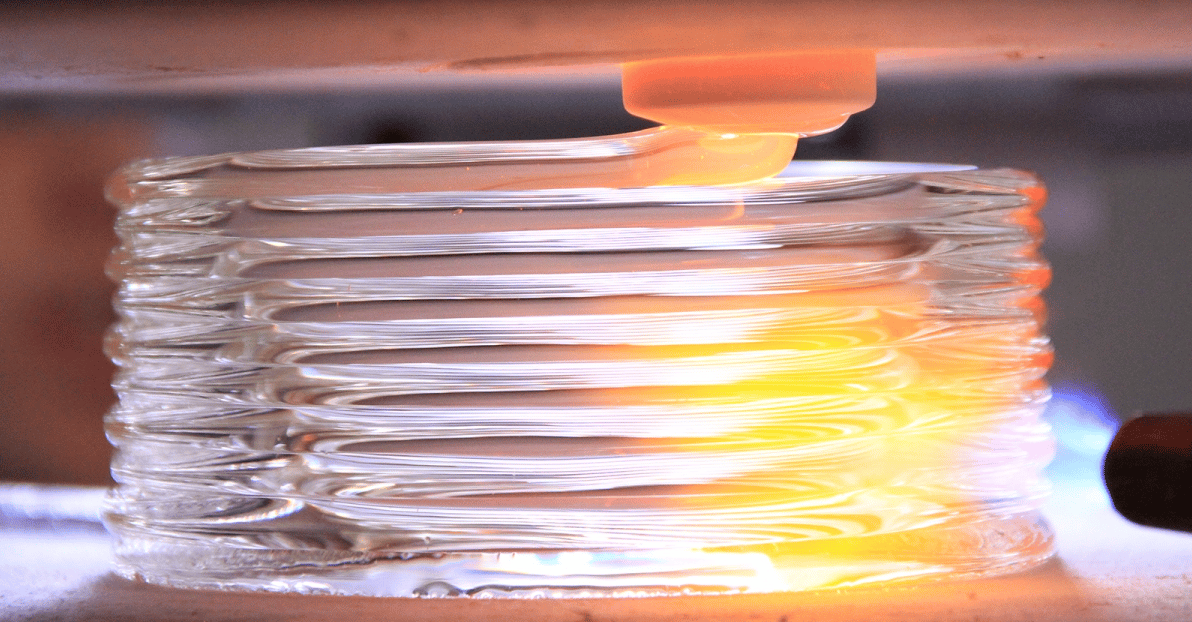Two years ago, in 2017, 3D glassblowing was presented as a very real project at Milan Design Week. The Mediated Matter Group of Massachusetts Institute of Technology, MIT, brought glass columns measured at 3 meters high. While 3D printers can be seen in many homes, or businesses, they work with easily formattable materials.
This will lead to an amazing increase in availability for intricate glass tools and artwork in the home. Glass 3D printing has the potential to influence design and further technology. Fiber Optic cables printed from exact scales and glass compositions make the process more controlled, and can exponentially increase quality.
Imagine breaking your glasses and being able to print something as accurate as a new lens right away. This will also benefit in the production of advanced fiber optic cables which can transmit light and data at an incredible rate. This begins with a platform that can 3D print this volatile material.
Plastics or other materials currently used are more forgiving when it comes to seams and don’t need to retain as much heat as glass through the printing process. MIT’s Mediated Matter Group is doing just this with the premiere of their system G3DP2. Members of this team, Chikara Inamura, Daniel Lizardo, Neri Oxman, Peter Houk, and Michael Stern shared the platform’s capabilities with the 3D Printing and Additive Manufacturing journal.
IMAGE: MIT
The Early Stages
The project began in 2015, two years before the 3D printed glass cylinders were brought to design week. The main problem lies in the complex layering 3D printing uses to build a solid surface. This produces lesser clarity and structural integrity than typical glassblowing techniques.
Glass I was the first trial in G3DP(1) which covered the production of average-sized lamps that could refract light. The goal of the 3d printing engineers was to have power over the mechanical aspects of glass, without forsaking quality spatial resolution. Glass printing came with its share of technical problems.
In the original study the biggest issue with the G3DP experiments was from the molten glass adhering itself to the tubes, or nozzle. This process of ‘wetting’ was tackled by changing the degree of the nozzle, so there is less surface area that the molten glass will come into contact with. However, by solving the first problem you often uncover more obstacles to overcome.
The Possibilities Of Glass Printing
With steady improvements occurring between the creation of G3DP and G3DP2, the cylinder design has evolved because of a new four-axis machine, instead of the priorly used three-axis printing machine. This gives the system greater motion control capabilities to increase accuracy.
Since the cylinders have above-industry-standard strength, they can begin being used for anything from advanced design projects to building sustainable ventilation systems. They are not only able to replace current glass housings, but also redefine what we use glass for. While glass is incredibly versatile, it has been limited for some time by the methods in which we could produce it.
Large cylinders of glass may not seem like a feat, but within these tall objects, there is a demonstration that architectural scale is attainable. These can become sources of ventilation, or an advanced HVAC system. Glass is often thought of as a weak substance, but it can be manufactured at high levels of sustainability.
This type of machine has the capability of becoming enwrapped in commercial and pedestrian smart-architecture. Everything down to replacement eyeglasses to dab rigs UK could be easily reproduced.
After time, these machines can find accessibility to the masses, producing 3D glass objects/tools from home. To see the full report on G3DP2, find the full Mediated Matter Group’s findings titled Additive Manufacturing of Transparent Glass Structures.
Creating Sustainable 3D Printing
Glass 3D printing is approaching an industry level, so it is hard to use the platform in areas that are not fit for the process. 3D printing is used primarily for simple parts that are then combined with other components, they do not have the ability to produce multi-material fully-operational working objects.
Pieces will need to be printed separately before being assembled. 3D printing is more sustainable than most machining techniques when creating hollow-core parts. With the rise of using glass as the material ‘printed,’ all projects currently do need to be hollow.
Worry is the current toxic material needed for any experimental 3D printing. The startup and cool down processes have a larger environmental footprint than the actual run-time of the machinery, so the more sporadically used, the work the printer does.
Glass Printing could become a sustainable architectural option for commercial and home spaces. The G3DP2 experiment from MIT shows the future of manufacturing and even design. Glass can be implemented into spaces more effectively, and serve purposes of other materials like plastic usually perform.
If you are interested in even more technology-related articles and information from us here at Bit Rebels, then we have a lot to choose from.


COMMENTS